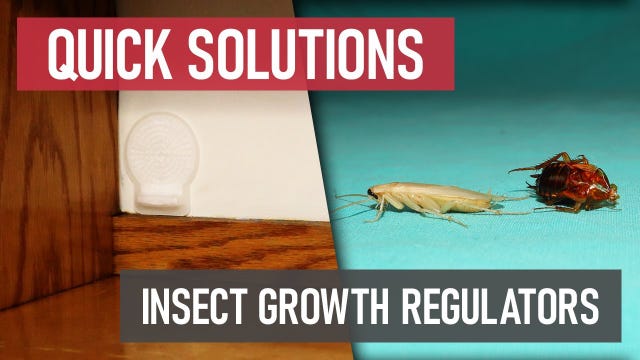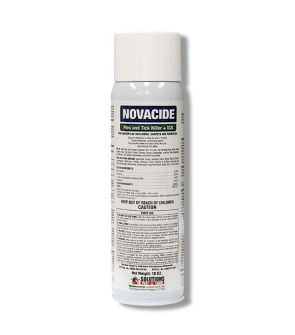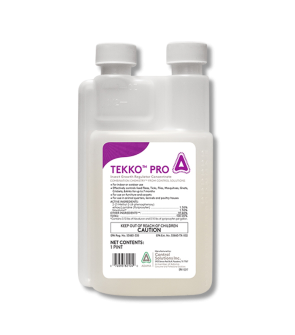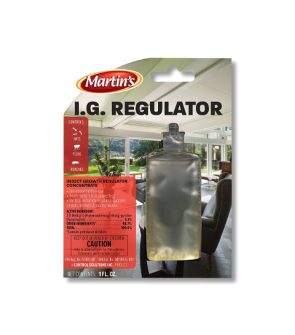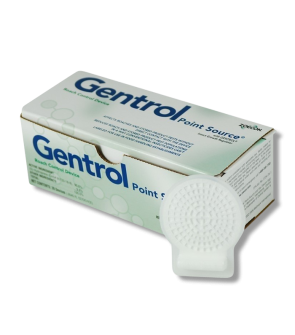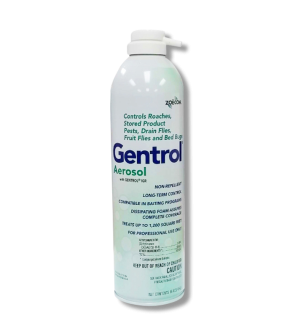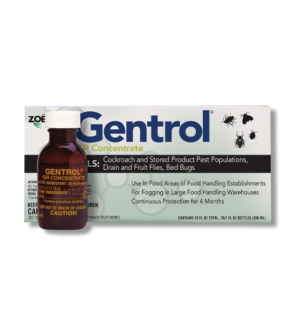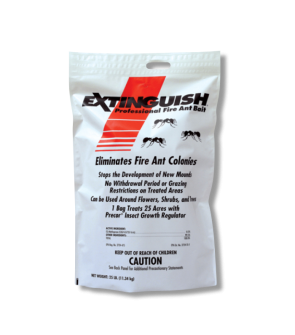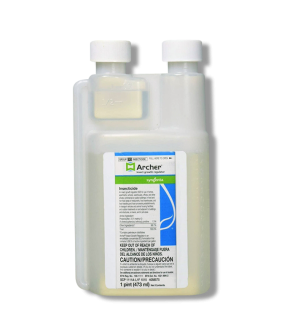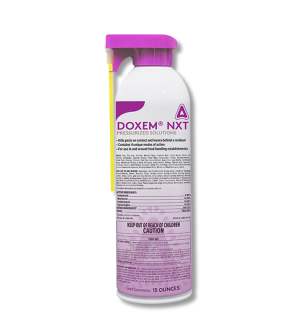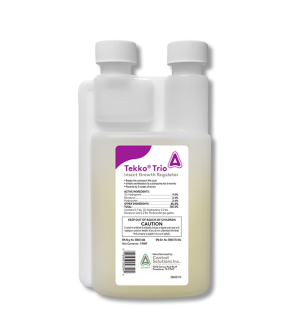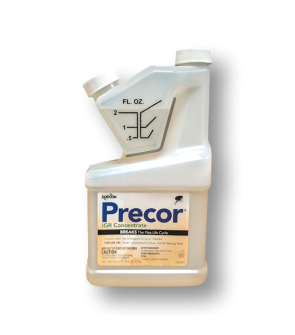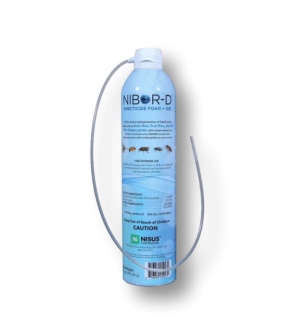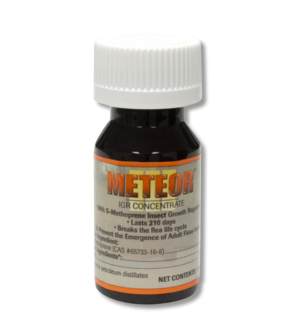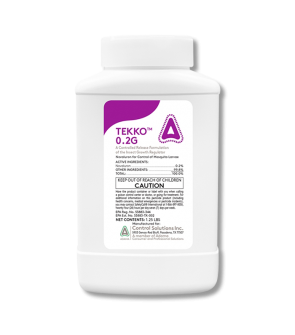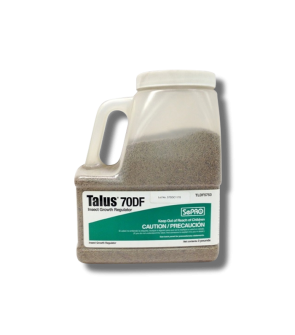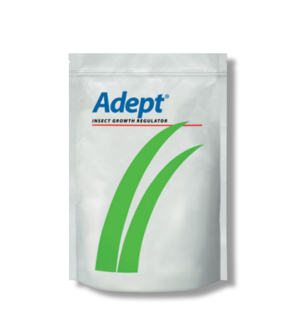Gain access to personalized product screening, the best pricing, rewards, and more!
Most Effective Products
Insect Growth Regulators
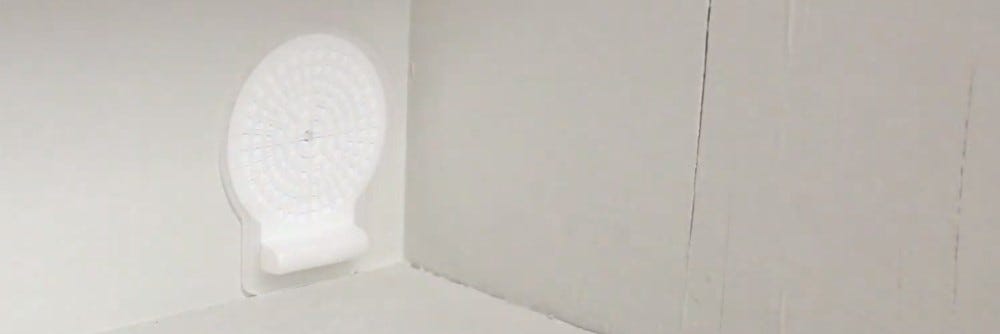
One of the most frustrating parts of pest infestations is the pest's ability to reproduce and multiply so quickly. Effective pest management programs reduce the likelihood of reinfestations, thus saving money by reducing the need for reapplications of pesticides. One chemical that is an effective aid in controlling the pest population long-term is Insect Growth Regulators, or IGR for short.
On this page, we will explain an IGR, how it works to eliminate repopulation and its benefits. You can also shop our top IGR product recommendations.
What are IGRs?
IGR stands for Insect Growth Regulator and is a chemical substance that detrimentally affects the life cycle of insects such as cockroaches, fleas, bed bugs, mosquitoes, and pantry pests. IGRs cannot kill adult insects. Instead, they help prevent insects from reproducing, stop eggs from hatching, and make nymphs and larvae unable to proceed to the next stage of their development. Thus, as their name states, they regulate the growth of insects.
IGRs can be a stand-alone product, such as an aerosol spray, concentrate, or disc, or mixed with other insecticides that kill adult insects to target the entire life cycle.
Some of the more popular active ingredients regarded as IGRs include Hydroprene, Methoprene, Novaluron, and Pyriproxyfen.
How Do IGRs Work?
Insects undergo either a gradual or complete metamorphosis before reaching adulthood. These stages vary from egg to nymph or larva to pupa and then finally adult. IGRs work by mimicking an essential hormone in insects that causes molting to take place. It is through hormone mimicry that they cannot progress into the next stages of their development.
For example, when an insect such as a cockroach or bed bug is in the nymph stage of development and comes into contact with an IGR, it becomes stuck in that stage and cannot grow. Their reproductive organs don't develop, so they can't lay eggs or make babies. In cockroaches, this is often visible in the roach looking deformed and wings appearing broken. The insect becomes sterile, breeding can not occur, and multiplication stops.
IGRs can also prevent eggs from hatching. Other IGRs, like diflubenzuron, are chitin synthesis inhibitors. These insect growth regulators work by interfering with an enzyme called chitin synthetase, resulting in disrupted molting and development.
Benefits of IGRs

Insect Growth Regulators are a helpful chemical and, in many cases, are vital to putting a stop to an infestation since they take away the ability of an infestation to continue to multiply.
IGRs work quickly, and most IGR products are long-lasting, so you don't have to apply them often. Some IGRs can remain effective in the area where they were used for up to 7 months. IGRs are odorless and can be applied in areas where food is handled or stored without an issue. Most IGRs are photostable, have low volatility, and have low toxicity to mammals, birds, and fish.
IGRs can move into areas that have not been treated, which is great for pests hiding in hard-to-treat areas like wall voids, behind equipment, and other areas.
Drawbacks of IGRs
IGRs do not kill insect populations on their own, namely already-developed adults. For adults, you will need an adulticide. IGR works best when combined with an adulticide, so eggs, nymphs, and adults are all addressed.
IGRs can harm beneficial insects such as bees, so you should be careful in where you apply it to reduce the chances of the IGR affecting non-targets.
Are IGRs Safe?
IGRs are low toxicity to humans and animals and are safe when applied according to the label directions. Exercise caution by wearing the proper personal protective equipment, such as gloves and protective eyewear, before mixing and applying the IGR products.
What To Expect
When applying an IGR, you should monitor the pest situation or observe the specific pest to see if there are changes in behavior and activity. For instance, if you notice cockroaches crawling around that look deformed, that means that IGR has affected them and the product is working. Use IGRs in combination with adulticides, and you should see a sharp decline in insect activity. Without reproduction, the population cannot regenerate, so they will die off completely.
When using an IGR alone, it may take 4 to 6 months for an infestation to die out, as the remaining adults will eventually die of natural causes. For very severe infestations of pests, you may need to repeat IGR applications more often until you observe less insect activity.
Featured Products
Novacide Aerosol - is an aerosol insecticide with the IGR Pyriproxyfen. Though primarily used for controlling fleas and ticks, Novacide can also be used against many other insects, such as roaches, moths, and ants. It is safe to use and kills with contact.
Gentrol Point Source—uses Hydroprene and is an easy-to-use Insect Growth Regulator that effectively breaks the life cycle of targeted pests. It can be effective for up to seven months, offering long-term control of cockroaches and some stored product pests.
Martin's IG Regulator - is an insect growth regulator that concentrates on Pyriproxyfen. It provides effective long-term control of fleas, roaches, flies, mosquitoes, gnats, crickets, litter beetles, and ants. The IGR works as a type of population control for insect invasions.






